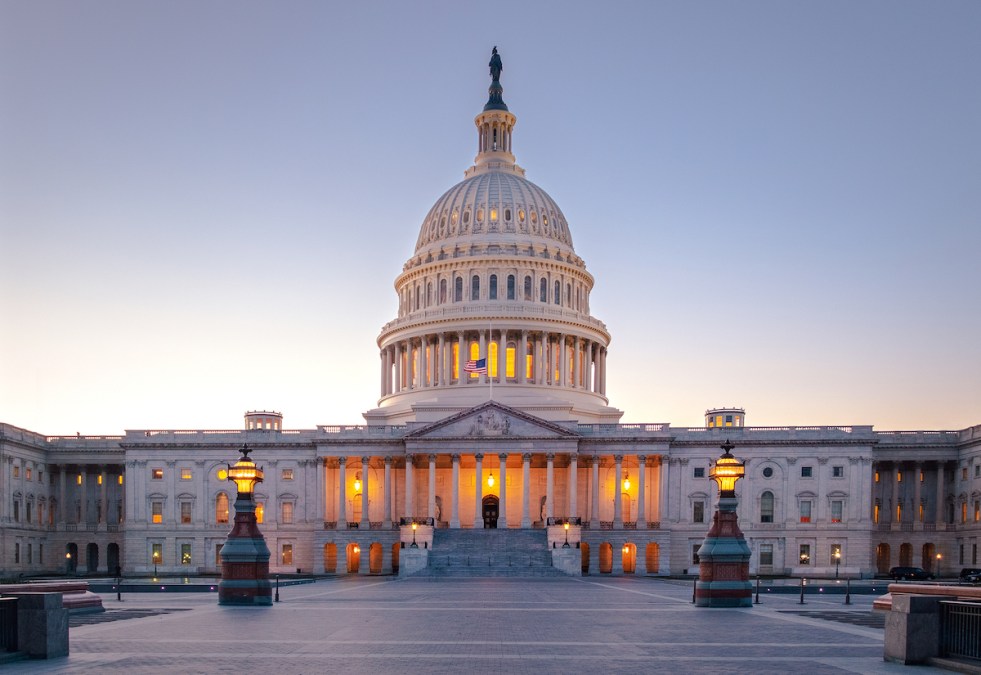In $1 trillion state and local government aid, no specific IT funding

The $3 trillion stimulus bill House Democrats unveiled Tuesday would appropriate nearly one-third of its funds to prop up state and local coffers that have been sapped dry by the COVID-19 pandemic. And though the bill would provide a salve to governors and mayors weighing cuts to their governments’ essential services, it stopped short of some of the programs targeting IT and cybersecurity that elected officials, technology leaders and some members of Congress had asked for as the package was crafted.
The Health and Economic Recovery Omnibus Emergency Solutions, or HEROES, Act, would distribute $500 billion to state governments and another $375 billion to cities, counties and other municipalities. Groups like the National Governors Association welcomed the proposal, which meets the amount of state funding it had previously said was necessary. In a statement from the NGA, Maryland Republican Larry Hogan and New York Democrat Andrew Cuomo — who chair and vice-chair the group, respectively — urged the bill’s quick passage.
“Each day that Congress fails to act, states are being forced to make cuts that will devastate the essential services the American people rely on and destroy the economic recovery before it even gets off the ground,” the statement read.
Cybersecurity grants absent
But missing from the draft legislation is any language directing that aid toward state and local governments’ IT or cybersecurity operations, which the NGA and other groups, including the National Association of State Chief Information Officers, have requested. In an April 29 letter to House Speaker Nancy Pelosi, D-Calif., the NGA, NASCIO and 10 other groups representing state and local officials said additional funding was needed keep government IT functional, especially as shuttered government offices force people to seek public services online.
“Increased traffic to unemployment portals and health insurance marketplaces has created additional risks as systems are being modified or created to handle the exponential increase in demand,” the letter read.
A handful of House members had also asked Pelosi to borrow language from the State and Local Government Cybersecurity Improvement Act, which was approved by the Homeland Security Committee in February, and would issue $400 million annually in grants for states to shore up their cybersecurity procedures and those of their local governments. But a committee spokesman told StateScoop this week that the current draft of the HEROES act doesn’t contain language directed at state and local cybersecurity. Rather, the bill’s language would allow states and cities to use funds broadly to “respond to, mitigate, cover or replace foregone revenues not projected” before the public health emergency began.
Still, there are other components of the bill that could support states’ technological needs.
Broadband funding
Similar to the relief package Congress passed in March, the HEROES Act would throw considerable funding at broadband programs. The Emergency Connectivity Fund, created in the March stimulus and distributed through the Federal Communications Commission’s E-Rate program, would be augmented with $1.5 billion to distribute mobile hotspots and other internet-connected devices in areas struggling to keep students connected to their remote classrooms.
Another $4 billion would be allocated to a separate fund reimbursing internet service providers for the costs of connecting low-income homes to broadband. The FCC’s Rural Health Care Program, which funds broadband coverage for telemedicine in remote areas, would also get a $2 billion boost.
Election administration
Despite stiff opposition from the Senate and the Trump administration, the House is making another swing at election administration assistance, offering states $3.6 billion in grants, as the need to expand mail-in voting this November grows. A report last month by a coalition of election-security experts found that the $400 million in election funds contained in the March stimulus covered less than 20% of what five states examined in the study would need to shift to by-mail elections. Legislation introduced earlier this year by Sen. Ron Wyden, D-Ore., sought to distribute $2 billion to help states that do not already vote by mail to adopt postal balloting, a process that requires massive printing expenses and acquiring technology that can match voters’ signatures against existing government records.
Wyden’s bill has not found much traction, and President Donald Trump, who voted by mail in Florida’s March 17 presidential primary, continues to malign mail ballots as fraudulent, despite instances of vote-by-mail fraud being described by experts as “virtually nonexistent.”
Michael Waldman of New York University’s Brennan Center for Law and Justice, one of the groups behind the report that found the initial $400 million in pandemic voting assistance lacking, welcomed the HEROES Act’s introduction.
“Election officials need federal funding to keep our democracy running during the pandemic,” he said in a statement released by NYU. “For election officials, the next few months are critical for obtaining supplies, installing new equipment, and testing new technology. Those preparations can’t wait until the fall. If Congress fails to provide the funding for this work, our democracy will suffer.”
Still, not all the election assistance funding included in the March package has been distributed, with some states balking at the requirement that they match 20% of their grants. (Previous grants distributed by the U.S. Election Assistance Commission, such as the $380 million round in 2018, required only a 5% match. On Tuesday, the Washington Post reported Florida Gov. Ron DeSantis still hasn’t approved the $4 million his administration would need to access a $20 million grant.






